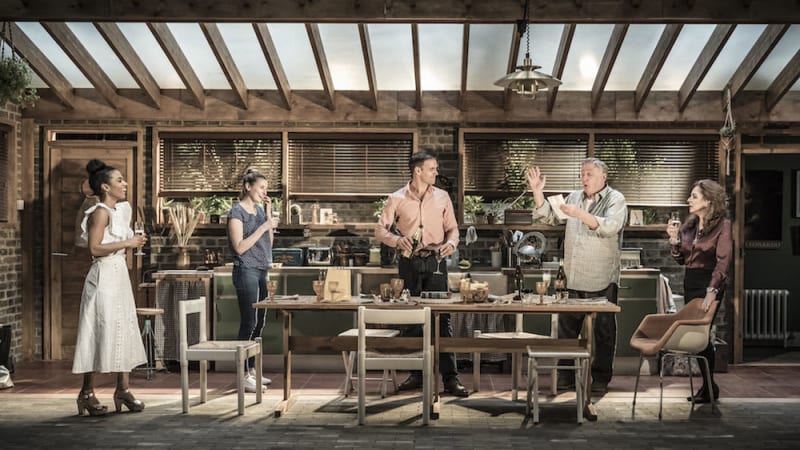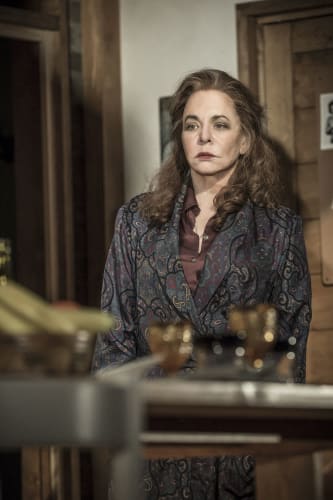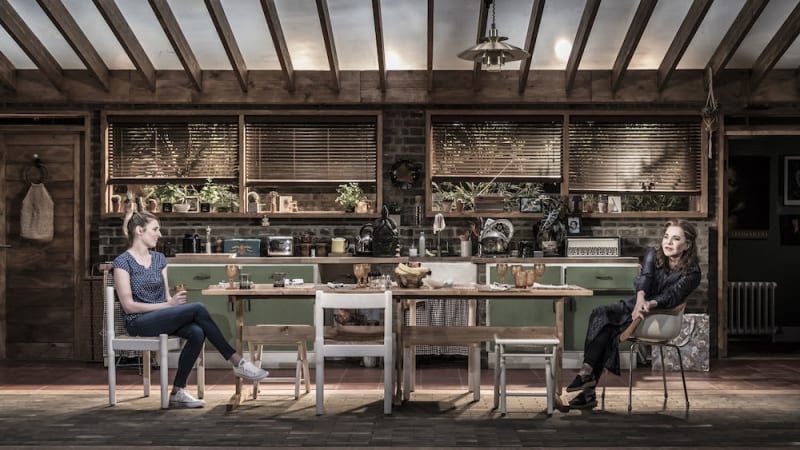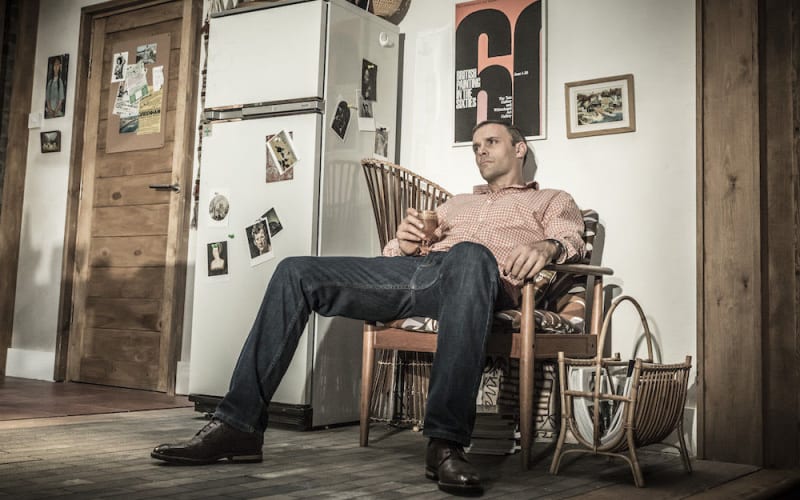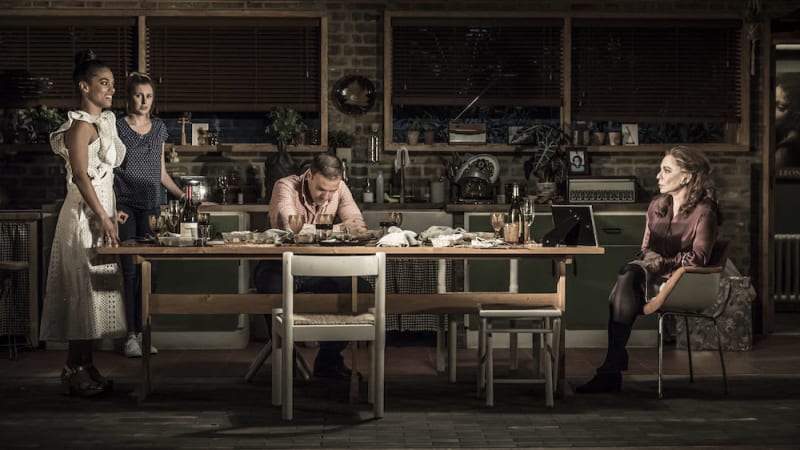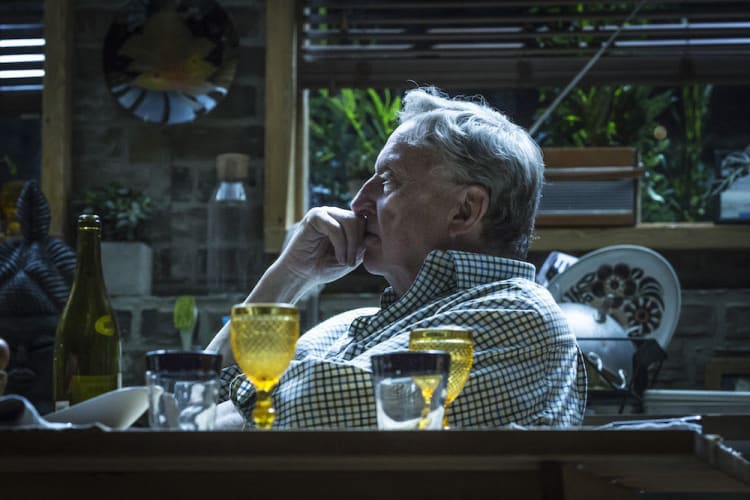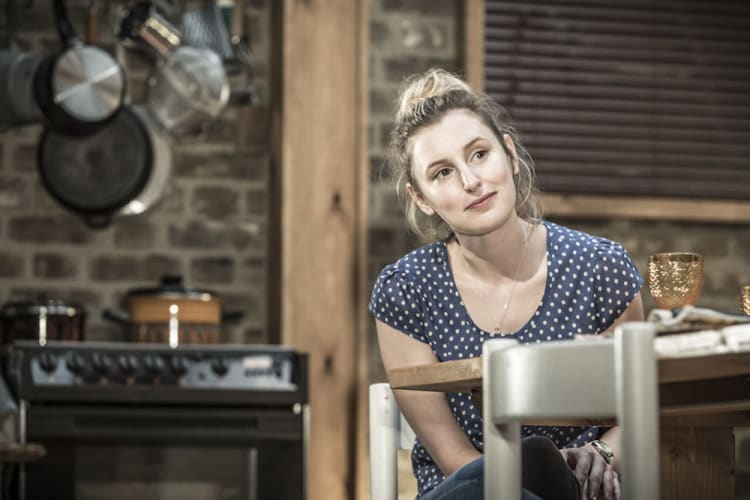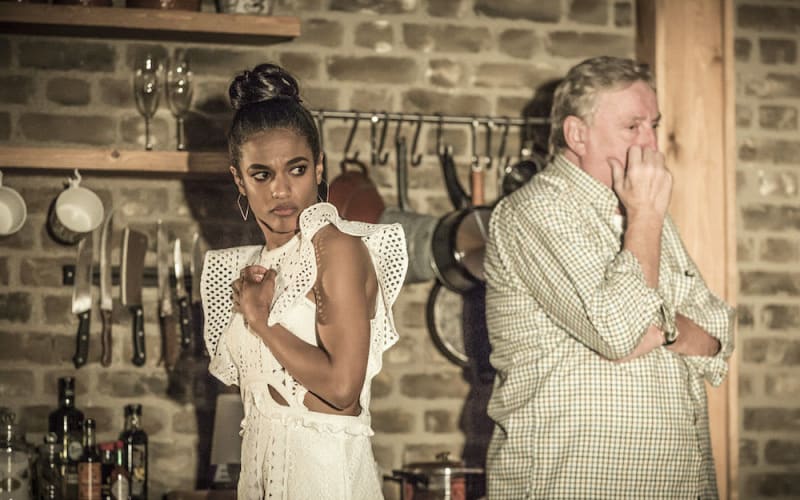Philip Larkin’s 1971 This Be The Verse (how often do we resort to that shorthand) is amplified over two and a half hours of fierce rancour, in which boils are lanced but not healed. Is there ever any resolution? Another generation squabble play but one with timely piquancy: Alexi Kaye Campbell’s witty 2009 Apologia targets the soixante-huitards baby boomers, their idealism, legacy and their neglected offspring. Jamie Lloyd’s smooth direction hits all the spots in this bull’s eye revival.
Kristin, an eminent art historian who fled America to make her home in Europe, is visited by her two adult sons and their partners. The occasion is her birthday. And the publication of her Apologia memoir, in which her children are not mentioned. “Why did she have us?” They have not seen each other for a long time. More than a dysfunctional family, it is her absence in their lives that rankles.
A career woman, fiercely intelligent, she doesn't suffer fools gladly, she speaks her mind, if not the hurt deep in her soul. What do the boys know of the pain of their absence in her life, they are still trapped in the moment, aged nine and seven, when their father stole them away from his wife? Why did she not win them back, why was she not there? Her unencumbered independence, her love for wider humanity is excoriated.
One son is a successful banker, “a taker not a giver” she says, another a dropout. Banker son Peter has found religion with his earnest, seemingly naïve American evangelical wife Trudi, who can’t help putting her foot in it. The other, Simon, comes at night when all are in bed to tell his mother of a scary incident in Genoa that won’t let him be. His two-timing actress girlfriend is another mouth that berates Kristin, her own shallow needs notwithstanding.
So much assault on her being, that one’s sympathies are manipulated towards the poor woman under attack. But there is an ally, a contemporary of hers, a fellow demonstrator, a witness to her true nature, her gay friend Hugh, with some of the best droll lines. And Desmond Barrit’s comic timing is finely tuned: a lovely Wildean performance that takes some of the sting out of the reproaches.
The writing is wry, funny; a cast of five plays six roles, the performances ring true, lengthy monologues not detracting from the flow. Chekhov’s Seagull is mined. The night scene in particular is pure Arkadina and Konstantin. Kristin bandages Simon’s bleeding hand as he movingly recounts that time in Genoa, the cause of his subsequent breakdowns, when he needed her more than ever. “Where were you?” Simon could be Chekhov’s Nina the second-rate failure, too. Joseph Millson, playing both brothers, two different sides of a coin, a clever directorial decision, quietly ratchets up the emotional tension.
Lippy Claire (Freema Agyeman) with her "because I’m worth it" £2,000 white dress (GDP of Angola someone says), on which clumsy Trudi (Laura Carmichael doing gaucheness amusingly well) spills red wine (a bit obvious, as is the plotting), is not that different from Kristin in her ambition if only she could see that. And her present of rejuvenating cream is tactless. As is her mocking of seventies naiveté. Money matters.
Trudi the Christian is also not so different from Kristin in her gentle faith, though Kristin reckons she’s “confusing Jesus with Oscar Wilde”… Patriarchal myth the Bible might be to feminist Kristin, but Trudi not only brings her a thoughtful present that turns out to be even more apposite than either of them know, she also, in a final scene, shows she has seen the lacerating pain and the unforgiving self-recrimination Kristin has borne all these years. She understands why she didn't include her sons in her book.
In a subtly ironic performance of bravado and vulnerability, Tony and Emmy award winner Stockard Channing walks a fine line between strong-willed articulate woman and one alone in a world that is leaving her values behind. Her speech on Giotto and empathy is splendid.
There are occasional audibility dips. The front half of the house is laughing whilst the back isn’t—the lines are just not reaching there. The funny and poignant lines deserve full expression. A bit more projection would not ruin this tenderhearted play.
Production values are excellent: Soutra Gilmour’s set, a well-appointed kitchen (where else but in a kitchen late into the night over much wine do heated discussions fly like barbs) with props flagging Kristin’s interests, Jon Clark’s lighting, and Ben and Max Ringham’s sound design (Hendrix, Dylan and Simon and Garfunkel fill the interval).
The run is long; there is no excuse not to see it. It is all about empathy, or lack of. Kristin is left alone, weeping, whimpering, staring at an old photograph of when she was young and full of ardour, cutting that path for future generations. Where is that dream now?
